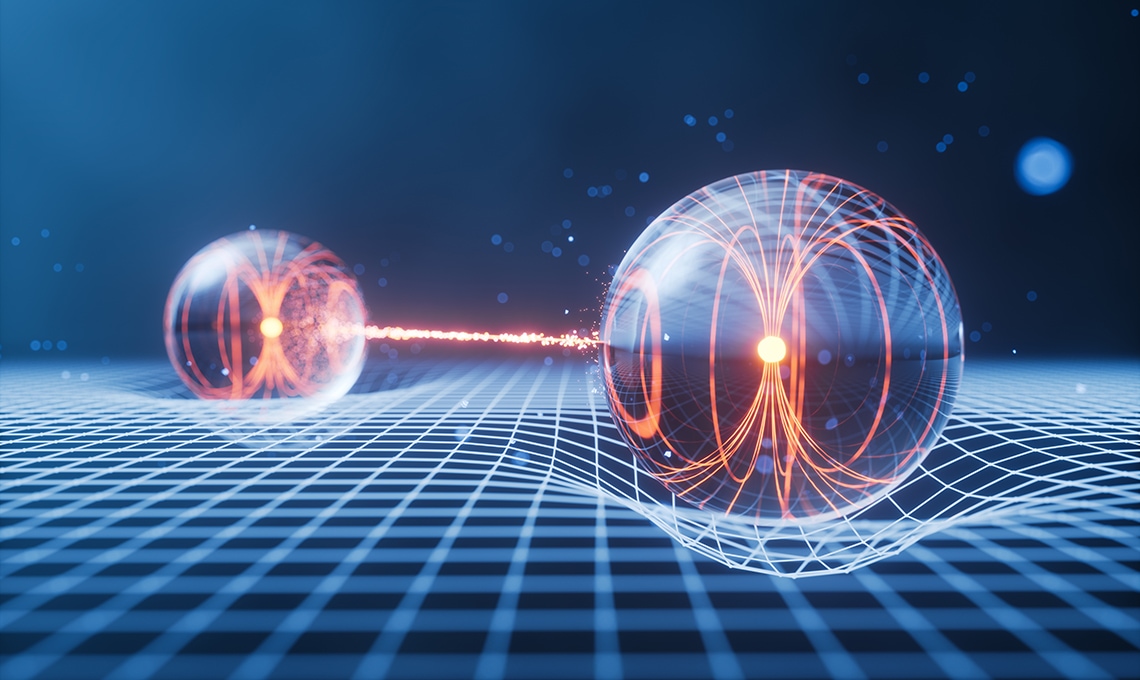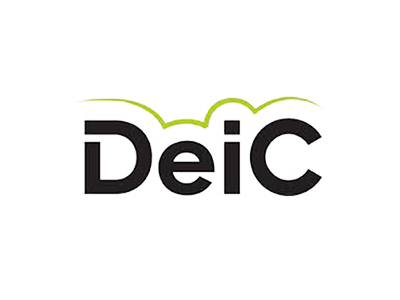
Momentum for quantum tech in Denmark
Danish researchers are testing devices that provide precise location data in remote areas without satellite navigation. Meanwhile, a new center for developing highly accurate healthcare sensors is opening in Copenhagen, highlighting Denmark’s momentum in quantum technology. Now, DeiC, Denmark’s national research and education network, is enhancing its commitment to quantum advancements.
“We offer support to all the various areas of research. Also, we are helping to accelerate the development of an eco-system for quantum technology,” says Henrik Sønderskov, who is heading up a new Quantum unit at DeiC.
For example, the DeiC National Quantum Algorithm Academy Fellowship Programme has launched its first project grants for Postdocs and PhDs on Quantum Algorithms and Quantum Software.
Another effort is focused on access to the new powerful computers of the future, the quantum computers.
“Much like Danish researchers can be assisted by DeiC in obtaining time on current supercomputers, we imagine a similar arrangement when it comes to quantum computers,” says Henrik Sønderskov, continuing:
“Different people have different opinions about when we will see quantum computers as a mature technology. So, this is a bit of a dark horse. But for sure, quantum computers will come, and we want to start getting the necessary infrastructure ready. We are already working with partners in Denmark and internationally on that.”
Rubidium atoms aid positioning
In the 1920s, Danish physicist Niels Bohr and his colleagues opened the door to understanding nature at the atomic level. In this tiny world, classical laws are no longer sufficient, and the principles of quantum mechanics must be applied. For instance, elementary particles in quantum mechanics are described not only by their mass and charge but also by a property called spin—something classical physics cannot explain.
Now, just over a century later, the laws of quantum mechanics are driving a new generation of technological breakthroughs.
One example is unfolding in Greenland, where researchers from the Technical University of Denmark (DTU) are testing a device capable of pinpointing its geographical position without relying on navigation satellites. The device contains super-cooled rubidium atoms that are sensitive to minute changes in Earth’s gravitational strength, allowing their movements to be translated into highly accurate positioning. This innovation has two significant advantages: it offers far greater accuracy than GPS or similar satellite-based systems, and it functions independently of satellites, which can fail or be disrupted during geopolitical tensions.
New center for medical quantum sensing
Another example is the Copenhagen Center for Biomedical Quantum Sensing. Here, researchers from University of Copenhagen, DTU, and the University of Texas at Austin will advance quantum sensing and imaging technologies in medical diagnostics and healthcare. The center is funded by a grant from the Novo Nordisk Foundation (NNF).
“Quantum sensing is among the most mature of the quantum technologies and hold the potential to greatly improve medical diagnostics (…). With this grant we want to enable further development and translation of this powerful technology from the laboratories to clinical applications,” states Lene Oddershede, Senior Vice President at NNF, in a press release.
There is a lot of mystery surrounding quantum technology, notes DeiC’s Henrik Sønderskov:
“But as applications find their way into the real world, we will soon see a change. We will begin to talk about the products and what they can do, not so much about how they are built on quantum technology.”
For more information please contact our contributor(s):

